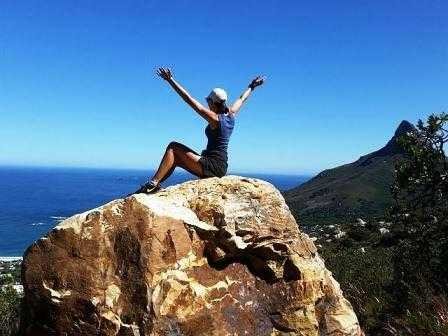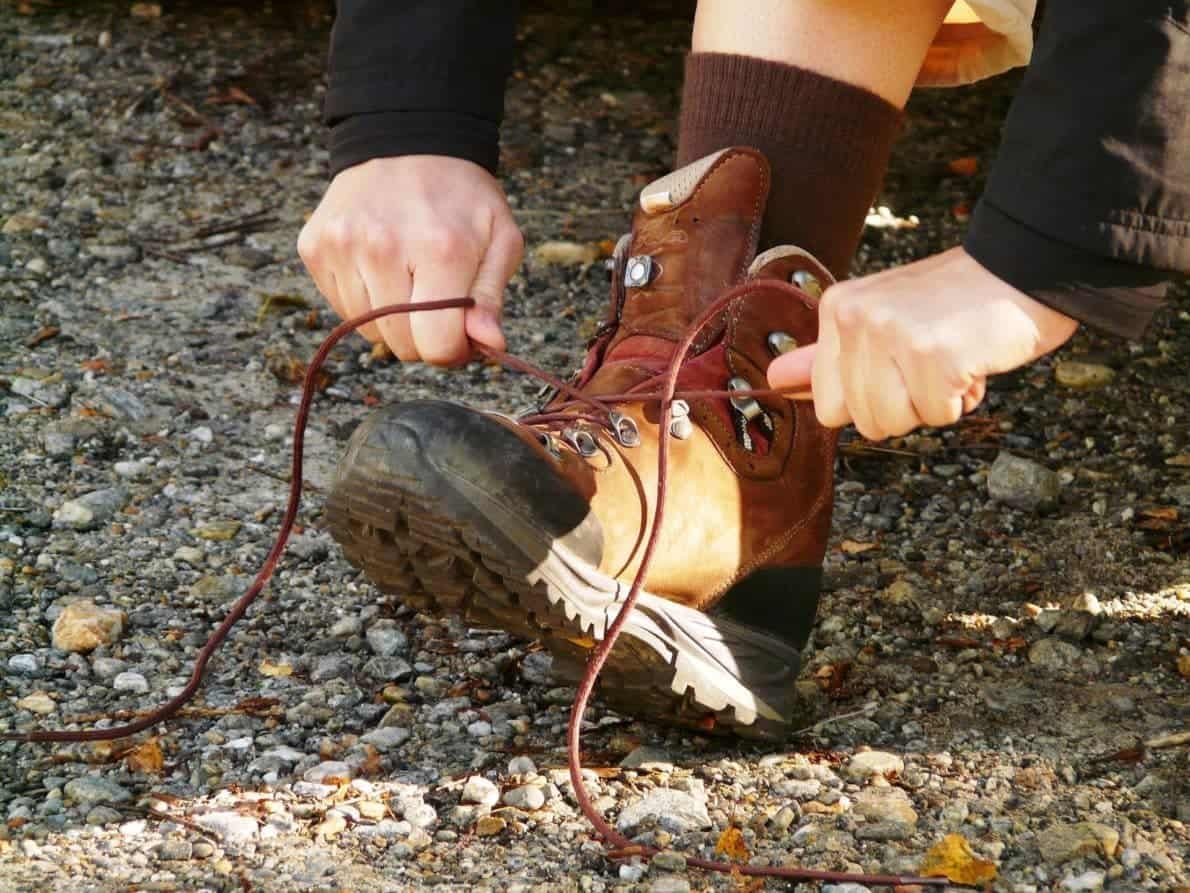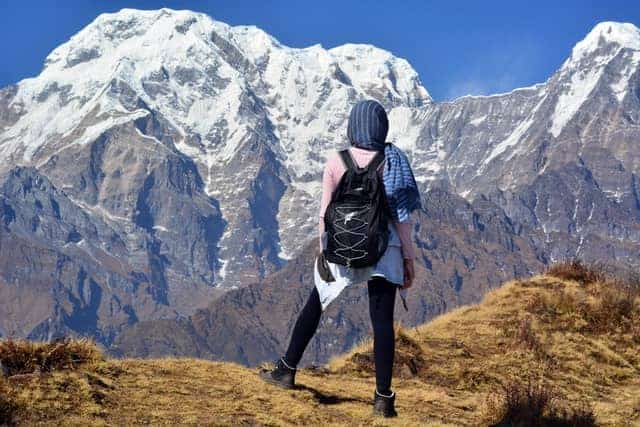There is no true replacement for fresh, open air. Somehow the stagnant air of a gym can’t compare to the boundless oxygen bouncing around under the sun. There is something special about feeling the wind on your face. The gravel crunches beneath your feet and you can see for miles.
Actually, there’s no other feeling like it.
It’s purifying. It feels like freedom. It just feels good.
And when we feel good, our bodies and minds benefit.
The mental and emotional benefits of hiking seem endless. Being in nature has positive influences that few other things in this world can give us to such a degree. While the complete list of the psychological benefits of hiking is big, below we outline some of the very best for your information.
1. Hiking increases the attention span

Now more than ever, many people are spending more than 7 hours a day using technology. This leaves a lot of room for information consumption. Likewise, there is little space for information creation.
With the overwhelming amount of information available, it’s easy to get sidetracked.
As a result, attention spans are all over the place, as switching from one task to the next is as easy as clicking a button.
It’s no secret that technology has a tendency to reduce our abilities to focus. Luckily, this is one area in which hiking provides a powerful remedy. Good old Mother Nature wants your complete attention. Furthermore, she requires it.
By practicing placing our focus on the present moment, we strengthen this ability. The wind in our hair, the sun on our faces, the sounds of the rusting trees all call our attention. Though simple, these things are hard to ignore because they feel so good.
There’s actually a theory about this. It’s called Attention Restorative Theory (ART). It suggests that exposure to nature strengthens the attention span.
2. Hiking increases creativity
When being in nature, we must keep our noses out of our phones to keep from crashing into trees or falling down a cliff. As a result, creativity increases when we put away the tech and the information it blasts our way.
In fact, studies show that being in nature improves the part of our brain that regulates creativity. Mother Nature doesn’t demand our attention, she attracts it. This, coupled with the ability of the brain to come up with new ideas when it feels healthy and good, makes for the perfect environment to get creative.
3. Hiking improves relationships

Along with creativity and attention span, hiking also strengthens our social circles. As a result, this does wonders for our mood. It’s easy to bond with friends or family by spending time walking in the woods together. On that note, we improve our relationships with others at the same time as we improve our relationships with ourselves.
While it’s true that exercise by itself shows to improve mental functions and mood, exposure to nature further improves these. Being in a world that doesn’t demand our attention in any specific way, we are able to more profoundly focus on our surroundings.
4. Hiking can heal our bodies
Still, the benefits of hiking don’t stop there. Studies have also shown that hiking can help fight off diseases within the body by increasing its capacity for antioxidants. This does wonder for our mental and emotional health. It means we are better able to handle what life throws at us.
5. Hiking increases our moods
For those with depression, hiking provides people with a sense of hope. It decreases feelings of hopelessness and softens the stress response. For those who don’t suffer from depression, hiking seems to strengthen inner peace. Being in nature cultivates a deeper sense of calm and well-being.
Our response to stress has a large impact on our day-to-day lives. This is another area in which hiking can have a huge positive influence. By hiking in nature, one increases the hormones associated with peace and well-being. Thus, hiking in nature decreases stress, and steps to a better life become clearer.
6. Hiking improves self-esteem
Along with the emotional benefits above, hiking can help strengthen our confidence. Hiking in nature has a strong effect on our sense of well-being. It spills into other areas of our lives, such as our feelings about ourselves.
7. Hiking improves brain function
In several studies, camping in nature shown to have immense benefits on the brain. For example, the Proceedings of the National Academy of Sciences of the USA did a study. It compared the effects of two groups of people. One group of participants went for a 90-minute hike through the city. The other group went for a 90-minute hike in nature.
While analyzing the data, scientists scanned their brains after the hike. They noticed that participants who hiked in nature caused less blood flow to the area that regulates depression and anxiety.
In short, this means that people who go trekking worry less, have decreased anxiety, and feel better.
This is why I hike. It simply feels good. The feeling of the sun on my skin, the smell of nature, the beautiful view ahead of me; it’s intoxicating. My mood is instantly lifted and I feel a sense of unimportant that is oddly satisfying.
When I’m hiking in nature, my problems seem so small. Likewise, I am better able to look at my life from an outsider’s perspective. I can more objectively deal with them and with less bias. Coupled with exercise, walking through nature has brought me some of the best feelings and experiences of my life.
Conclusion
While this list includes some of the best, these benefits extend to every area of our lives. Being in nature has therapeutic effects one can’t get in a gym. Equally important is the need to explore the best places and see what Mother Nature has to offer. And nature has something to offer everyone.
Judging from all of the benefits on this list, the world wants to be seen and it seems to draw us to want to see it. The next time you’re given the chance, I hope you’ll choose nature. It’s only fair; the wild is calling.
Disclaimer
All the information displayed in this article is in good faith and is exclusively meant for educational purposes. Under no circumstances should the images, graphics, texts, and other materials created by this article be perceived as medical treatment, diagnosis, or instruction. Only seek professional medical advice from a qualified physician concerning any medical condition.
In the event of a medical emergency, contact the nearest medical facility for assistance. Do we neither endorse nor recommend any particular claims, opinions, procedures, or products highlighted directly on the site or through links to an external website.
Always, we deduce some of the information from our outdoor, hiking, or camping experience and do not provide any warranty regarding its accuracy, completeness, reliability, and accuracy. Therefore, any action undertaken because of the information available on this website Hiking Gear Lab is entirely at your own risk. We will not be in any way accountable for damages or losses incurred through the reliance on the information on our website/this article.
Always, consult your physician or a qualified medical professional for exact information before making a decision on changing your lifestyle or diet depending on the information given in this article.
Reference :
1. https://journals.plos.org/plosone/article?id=10.1371/journal.pone.0051474
2. https://www.huffpost.com/entry/how-taking-a-hike-can-mak_n_5584809?_guc_consent_skip=1575270970




